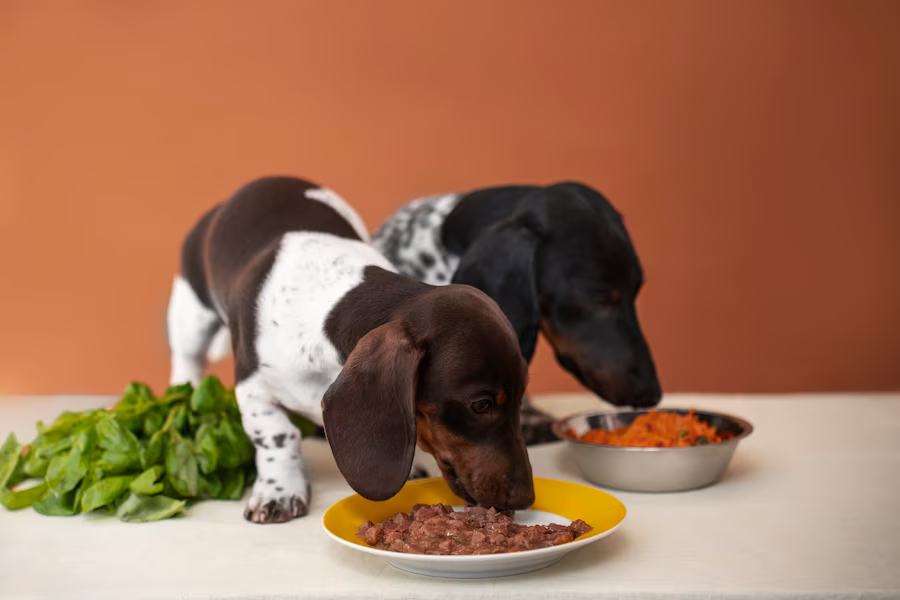Do Dogs & Cats Need Fats in Their Diet? | Express Vets Holly Springs

Fats often get a bad rap when it comes to human nutrition, but when it comes to our pets, fats are a critical component of their diet. Just like proteins and carbohydrates, fats are one of the essential macronutrients that play a vital role in the health and well-being of dogs and cats. Understanding the importance of fats in pet nutrition can help you make better dietary choices for your furry friends.
Fats provide a concentrated source of energy, containing more than twice the energy per gram than proteins or carbohydrates. This makes them especially important for active pets that require higher energy levels to maintain their daily activities. For dogs, fats are a primary energy source that fuels their muscles and supports their metabolic processes. In cats, fats also serve as an energy source, but they are crucial for maintaining a healthy skin and coat.
Beyond providing energy, fats are essential for the absorption of fat-soluble vitamins such as vitamins A, D, E, and K. These vitamins are crucial for various bodily functions, including vision, bone health, immune function, and blood clotting. Without adequate fat intake, pets may struggle to absorb these vital nutrients, leading to deficiencies that can affect their overall health.
Fats also contribute to the palatability of pet foods, enhancing the taste and aroma that can entice even the pickiest eaters. This is particularly important for pets that may have reduced appetites due to illness or age. Including the right amount of healthy fats in their diet can encourage them to eat and ensure they receive the nutrients they need.
When it comes to choosing fats for your pets, quality matters. Not all fats are created equal, and some are healthier than others. Omega-3 and omega-6 fatty acids are essential fats that must be included in your pet’s diet because their bodies cannot produce them. These fatty acids play a crucial role in reducing inflammation, supporting brain health, and promoting a healthy coat and skin. Fish oil, flaxseed oil, and chicken fat are common sources of these beneficial fatty acids in pet foods.
However, it’s important to strike a balance when it comes to fat intake. While fats are essential, too much fat can lead to obesity and related health issues such as diabetes, heart disease, and joint problems. Feeding your pet a diet that is too high in fat can also lead to pancreatitis, a painful inflammation of the pancreas that can be life-threatening.
To ensure your pet gets the right amount of fats, consult with your veterinarian about their specific dietary needs. Factors such as age, breed, activity level, and health status can influence the optimal fat intake for your pet. Puppies and kittens, for instance, require more fats in their diet to support their growth and development, while senior pets may need fewer fats to maintain a healthy weight.
When selecting commercial pet foods, look for high-quality products that list animal fats or oils as part of the ingredients. These are typically more digestible for pets compared to plant-based oils. If you're considering homemade diets, work closely with a veterinary nutritionist to create a balanced meal plan that meets all of your pet’s nutritional needs.
In summary, fats are an essential part of a healthy diet for dogs and cats, providing energy, supporting nutrient absorption, and promoting overall well-being. By ensuring your pets consume the right amount of high-quality fats, you can help them lead active, healthy lives. For more personalized advice on your pet’s dietary needs, contact Express Vets Holly Springs and speak with our team of caring professionals.
Ensure your pets are getting the nutrition they deserve. Visit Express Vets Holly Springs at 6244 Holly Springs Parkway Suite D,Holly Springs, GA 30188 or call us at (678) 402-8717 for a consultation to tailor a diet plan that suits your pet's unique needs.



















